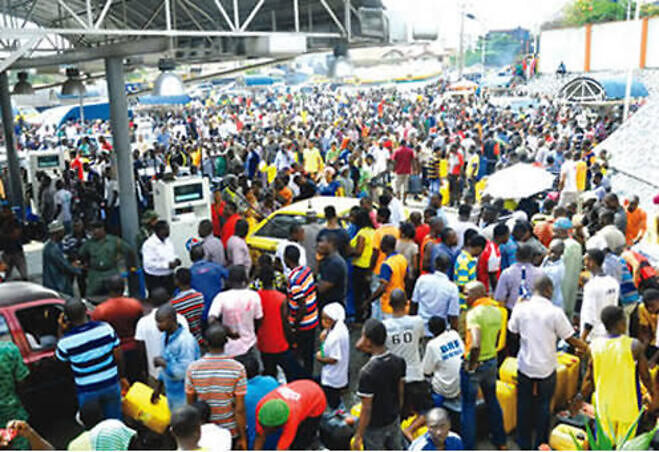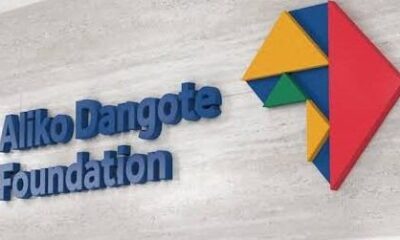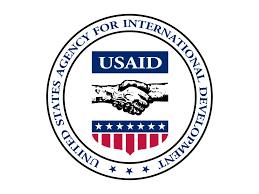Editorial
Violence is too costly for Nigeria: Concerted efforts from all now sacrosanct
The disposition of Nigerian authorities to violence apparently reflect the Government may be oblivion of its cost in the Country. Recently, the narratives of violence in various forms have set to put before the Country reflections of anarchy and impunity of illegal use of force. In its various forms, violence has largely held the Country to ransom with far reaching impacts which have left the Country with clusters of unsavoury conditions.
The wild wave of these ills in their effects appear to be more stormy from particular ends, and its cost with subtle impacts, a condition that may be linked to why the apparent care-free disposition on the part of the Government has been perceivable and to certain extent, other fabrics of the society standing passive to the threats.
Be it on the scale of the evident losses and the subtle impacts, the evident damages of violence have indisputably inflicted debilitating blows on the Country’s societal fabric with huge cost. It is indisputable that the entire fabric of the Country have had to suffer directly and/or indirectly from the clusters of violent aggression in whatever form they appear. From the domestic enclave to terrorism front, violence is undesirable and has been costly on Nigeria.
The Institute of Economics and Peace (IEP) on Wednesday, 31st August 2022, disclosed that violence affected about eight per cent of Nigeria’s Gross Domestic Product (GDP) leading to the country losing about N50 trillion within 18 months. IEP in its 2021-2022 report (January 2021 to June 2022), tagged “Nigeria Security Analysis Report” followed a research organised by Nextier SPD, which considered violence and its attendant effects on the Nigerian economy. Nextier has maintained a robust database of violent conflicts in Nigeria in recent years. The Database tracks violent conflicts such as banditry, terrorism, extra-judicial killings, farmer-herder incidents, armed robbery, cultism, piracy, secession agitation, and communal clashes. The Nextier Violent Conflict Database is aimed at providing detailed insights into violent conflicts in Nigeria for research, policy advocacy, development and security.
In the report presented in Abuja, it was alleged that the Nigerian government spent about N8trillion on security without achieving the desired results. It stated that the increase of violence left state governors apparently overwhelmed as they were restricted by the constitution from taking certain measures in combating insecurity in their respective States. According to IEP, “Nigeria lost about N50.38 trillion to growing violence in 2021. The Nigerian government has spent at least N8 trillion on security provisions without achieving the desired results. Many governors have stated in different fora, that they are not the chief security officers in their states.”
It explained that the report was based on analyses carried out on violence activities across the Country, including secession agitations in the south, bandits attacks on vulnerable villages in Northwest and North central Nigeria, with incidences of village raids, sexual violence, ransom kidnapping, cultism, killings, and large-scale livestock which has affected the livelihoods of about 21 million people in Kaduna, Katsina, Kebbi, Niger, Sokoto, and Zamfara states.
It stated that, “banditry in the Northwest and North central regions transitioned from raids on vulnerable communities to large-scale ransom kidnapping of school students and brazen attacks on targets, including military installations. Sometimes, bandits send Ietters of impending attacks and extort levies from terrified communities.”
According to the report, a key feature of contemporary armed conflicts is that civilians have become combatants and primary victims, noting that in Nigeria, villages, streets, and schools have become battlefields, which eventually resulted to self-help and group-level armed defence systems responsible for increased secure violent hotspots.
“From the North to the South, activities of armed men have led to bloody shootouts, protracting crises, and complicated security situations. In many rural communities in Nigeria, violent conflicts limit access to farmlands and disrupt livelihood sources. Due to this challenge, food insecurity across Nigeria looms rural areas.
“Also, cities are not left out. Research shows that rural-urban migration may contribute to social and economic problems, including urban insecurity. It pointed out that despite the decrease in terror-related deaths, Nigeria recorded the ninth highest number of persons killed by terrorist incidents worldwide in 2022 due to recurrent crisis in 2022, which include banditry, terrorism, cultism, extrajudicial killings, farmer-herder struggle and secessionism,” the report stated.
It said in the wake of these violences and despite security responses, banditry incidents and fatalities have continued to heighten aided by security personnel. “Bandits are rampaging vulnerable villages in Northwest and North central Nigeria. Tracked activities by bandits include village raids, sexual violence, ransom kidnapping, killings, and large-scale livestock rustling, said the report, citing the recurrent violence affects livelihoods.
“The secessionist agitations in Nigeria raise serious concerns and have continuously thrown the nation into a state of instability and disintegration. At the very least, a significant amount of resources and lives have been lost during these agitations. Escalating violence in the South East is hampering economic progress and social order,” the report read.
According to a report, every time there is a sit-at-home, the Southeast geopolitical zone loses about N10 billion Naira.
“Cities like Onitsha, Aba, and Nnewi are core manufacturing and commercial hubs that are negatively impacted by the insecurity in the region. Manufacturing accounts for 31% and 30% of businesses in Aba and Onitsha. These commercial centres are also export routes to Central and West African nations.
“Violence is a drawback to education in the region. While pupils, students, and teachers in various parts of the country attend school, their southeast counterparts do not attend school on Mondays to avoid the wrath of overzealous members of the Indigenous People of Biafra (IPOB). Additionally, insecurity has displaced many farming communities and hindered cultivation. This situation has deterred agricultural supply and increased the cost of agricultural goods.
“Nationally, the cost of essentials like beans and tomatoes has increased by 253 per cent and 123 per cent, respectively, since July 2020. A measure of beans (known as Mudu) cost 73 cents (N305.48) in July 2020, but by July 2021, it was going for $2.16. (N900). Other goods, including bread, onions, and cassava flour, have increased exponentially,” the report noted.
Away from the forefront of terror based aggression, the violence within domestic circles appear to bear deep records with far reaching impacts. Issues of emotional trauma and imbalance, depression and other psychological defects are known to be associated with the various forms of domestic violence related offences. The rising records of these forms of violence, pose real threats which demand for critical attention. Wednesday 31, August 2021, it was disclosed no less than 4,860 cases of domestic violence, rape, sexual assaults and other related offences were recorded by the Lagos State Government (LASG) in the last 10 months. The State’s Attorney General and Commissioner for Justice, Moyosore Onigbanjo who made the disclosure at a news conference commemorating the Domestic and Sexual Violence Awareness Month, September, 2022, said the figures covered the period between September 1, 2021 and July 31, 2022. Giving a breakdown, Onigbanjo said there were 2,029 domestic violence cases, 65 rape cases, 40 sexual assault cases, 10 attempt to commit rape, five sexual assaults by penetration, 73 threat to life and 488 others, such as separation, neglect, among others. Others included 113 child abuse/physical assault, 194 defilement cases, 15 defilement/molestation by minor to minor, 105 child labour, abduction neglect and 145 sexual harassment/molestation cases. The Attorney General added that a total of 1,578 children had experienced emotional abuse, explaining that 55 percent of these children had been taken through counselling programmes to ensure they were able to psychologically deal with the events they had witnessed without it having a permanent and negative impact on them. He further revealed that the youngest child that experienced sexual violence in the year under review was eight months, while the oldest clients that experienced domestic violence were 75-year-old woman and 89-year-old man.
“We have also witnessed an increase in reporting of cases from other States; mostly from Ogun, Abia, Anambra and others respectively. In the past 11 months, a total of 394 cases occurred outside Lagos. Such cases are promptly referred to the relevant agencies in their respective States. The Office of the Public Defender as well as the Lagos Public Interest Law Partnership (LPILP) has provided free legal representation to 110 survivors of Domestic Violence, ranging from Judicial Separation, Divorce, Maintenance, Custody of children and Settlement. All the survivors of sexual assault received medical attention from Comprehensive Primary Health Care Centres, General Hospitals and Sexual Assault Referral Centres like Mirabel Centre, Women at Risk International Foundation (WARIF) as well as Idera Centre,” he said.
The need to fight the disturbing scourge of violence in the Country headlong is pertinent. Such fight must be comprehensive and overarching. Hence, to make the fight meaningfully driven, all well intentioned citizens, organs and institutions must rise to the challenge. While the Government has the monopoly of the control of the security forces in the Country, a function which situations now demand it becomes alive to, the Government cannot be left to it alone. Leaving the Government to fight solely would only amount to frustration. Hence, the fight to quell the prevailing raging storm of violence in the Country must be concertedly prosecuted by all, as every right thinking person and well intentioned institution of the society has their distinct and definite role to play.
For the Government, the primary role of enforcing law and order is a duty call it must awake to fulfill without option, while other institutions including the religious, cultural, traditional, social, political, among other organised bodies, including the media, civil society groups, among others have their roles to play to blend, where applicable, and complement, where necessary, measures to enforce social sanity and bring the society to the ambience of tranquillity for peaceful coexistence.
Editorial
Fuel scarcity: A national embarrassment that demands lasting solutions


As Nigerians, we have grown all too familiar with the debilitating effects of fuel scarcity. The latest crisis, which has brought transportation to a grinding halt, hiked costs for businesses and citizens, and dashed hopes of a subsidy-free era, is a reminder of our nation’s perennial fuel supply challenges.
The removal of the fuel subsidy, announced by President Bola Tinubu on May 29, 2023, was touted as a panacea to our fuel woes, but alas, we were wrong.
The long queues that have resurfaced at the few functioning filling stations in Abuja and other states are a painful reminder of the dark days when fuel scarcity was the norm rather than the exception.
It is unconscionable that despite the quadrupling of fuel prices, Nigerians are still forced to endure the excruciating pain of fuel queues.
The government’s failure to address the root causes of fuel scarcity has led to a vicious cycle of scarcity, hike in prices, and untold hardship for citizens. It is imperative that the government takes concrete steps to address the issue once and for all.
The current fuel shortage in Nigeria, attributed to logistical issues by the NNPC, is a stark reminder of the government’s chronic failure to address the nation’s energy crisis.
Despite claims of resolved problems, the reality on the ground tells a different story – dry fuel stations, skyrocketing transportation costs, and a citizenry bearing the brunt of this inexcusable crisis.
The government’s explanations ring hollow, rehashing familiar excuses – logistical issues, pipeline vandalism, crude oil theft, and foreign exchange scarcity.
These are not new challenges, yet successive administrations have failed to implement lasting solutions, opting for temporary fixes that inevitably unravel.
It is a national embarrassment that Nigeria, Africa’s largest oil producer and a significant global crude supplier, cannot reliably provide fuel for its citizens and industries.
The country’s four refineries have been in disrepair for decades, operating at a fraction of their capacity or lying moribund. Promises to revamp these critical assets have been made and broken countless times.
While the Dangote Refinery offers hope, it is a private endeavour that should not absolve the government of its responsibility to restore Nigeria’s public refineries to full working condition.
The promises to revive Nigeria’s refineries and depots are mere words until action is taken. The country’s overreliance on a single fuel depot and loading point in Lagos is unsustainable and a recipe for disaster.
The logistical challenges cited by NNPC are symptoms of a deeper problem – a lack of investment in critical infrastructure and a failure to address the root causes of fuel scarcity.
Nigeria must revive its network of 21 dysfunctional depots and repair the vandalised or obsolete pipelines that once served as product distribution arteries.
The threat by independent petroleum marketers to halt supply over unpaid bridging claims totaling N200 billion owed by the government is a crisis compounded by policy inconsistencies, delayed payments, and the broader challenges of operating in an economy plagued by foreign exchange volatility.
The NNPC’s claim of having over 1.5 billion litres of products to last 30 days is a temporary reprieve, but it does not address the structural deficiencies that have made fuel scarcity a recurring nightmare.
Nigeria loses trillions of naira annually to crude oil theft and pipeline vandalism, a hemorrhage that must be stanched through robust security measures and decisive prosecution of perpetrators.
The adoption of alternative crude evacuation systems involving barges and trucks is a pragmatic stopgap, but it should not divert attention from the pressing need to secure and rehabilitate the nation’s critical pipeline infrastructure.
It is time for leadership and action, not just words, to address the fuel scarcity crisis and ensure a stable and sustainable energy future for Nigeria.
But, the military’s Operation Delta Safe has recovered a mere drop in the ocean – four million liters of crude – amidst an ocean of losses. It’s time to confront the elephant in the room: our addiction to fuel scarcity.
Successive governments have peddled empty promises, leaving Nigerians to suffer the consequences.
The Tinubu administration inherits this ticking time bomb and must defuse it with unwavering commitment, innovative solutions, and political will. The fuel crisis is not just an economic issue but a national security imperative, holding our industries, transportation, and households hostage.
Nigeria’s vast oil wealth should be a blessing, not a curse condemning citizens to perpetual hardship. The time for excuses and temporary fixes has passed. Nigerians demand decisive action, transparency, and accountability from their leaders.
They deserve a future where fuel scarcity is a relic of the past, refineries operate at full capacity, and black gold fuels progress, prosperity, and sustainable development.
The fuel crisis is a test of leadership, one that has humbled successive administrations.
President Tinubu must rise to the challenge, marshaling all resources and stakeholders towards a comprehensive strategy that tackles the root causes of this recurring nightmare.
It’s time to break the vicious cycle and unleash a new era of progress and prosperity for Nigeria. The nation’s future depends on it. Will President Tinubu answer the call? Only time will tell.
We demand a comprehensive overhaul of the fuel supply chain, investment in local refining capacity, and a commitment to transparency and accountability in the management of our natural resources.
Nigerians deserve better than the perpetual fuel scarcity that has become a hallmark of our nation’s incompetence.
It is time for our leaders to take responsibility and act with the urgency and decisiveness that this crisis demands. Enough is enough! We demand lasting solutions to this national embarrassment now!
Editorial
Nigeria’s Human Rights conundrum: A call to urgent action


Nigeria’s human rights landscape has long been a cause for concern, but the latest revelation by the National Human Rights Commission (NHRC) paints a particularly dire picture.
The shocking disclosure that 1,580 human rights violations occurred in March 2024 alone is a stark reminder of the precarious state of human rights in our country.
Even more disturbing is the breakdown of these violations, which reveals a disproportionate impact on the North Central region and a troubling involvement of state actors, including the police, military, and DSS.
This crisis of accountability and protection demands urgent attention and action from all stakeholders, and it is our hope that this editorial will contribute to a much-needed national conversation on this critical issue
The most vulnerable members of our society, children, were not spared, with 542 cases of rights violations recorded. Domestic violence, which is becoming increasingly rampant, accounted for 471 cases.
Non-state and private actors were also responsible for 32 and 36 violations, respectively, while three cases of rights violations were recorded against people with disabilities.
The NHRC’s report is a wake-up call to all stakeholders, including the government, civil society organizations, and individuals, to take immediate action to address these violations.
The fact that social, economic, and cultural rights accounted for 157 violations, and referred cases stood at 24, highlights the need for a comprehensive approach to addressing human rights issues in Nigeria.
It exposed 499 killings and kidnappings, 71 violations of the right to life, and 301 school children abducted in Kaduna State alone.
The commission’s Senior Human Rights Adviser, Hilary Ogbonna, revealed these shocking statistics, which include 40 people killed in Benue State and four deaths in Nasarawa State during palliative distribution.
The report highlights a broader pattern of human rights violations, including domestic violence, abductions, and children’s rights abuses. It’s alarming that the right to life is being violated in various ways, and human rights violations are escalating.
This is despite Nigeria’s adoption of the Universal Declaration of Human Rights and over two decades of democratic governance.
The Global Peace Index Report’s ranking of Nigeria as one of the least peaceful countries in the world (144th out of 163) is a damning indictment.
The report emphasises the gravity of human rights abuses in Nigeria, where basic rights like freedom from oppression, participation in decision-making, and access to fundamental needs like food, work, medical care, and education are frequently denied.
However, the Universal Declaration of Human Rights, adopted in 1948, enshrines fundamental rights like freedom from oppression, participation, and access to basic needs.
While many countries, including Nigeria, have incorporated these rights into their constitutions, the reality on the ground is starkly different.
In Nigeria and Africa, people face physical and mental torture, police brutality, domestic violence, kidnappings, and detention without trial.
Since its declaration, it has become fashionable for most countries of the world, Nigeria inclusive, to entrench the catalogue of rights in their constitutions.
But, regrettably, in Nigeria, and indeed Africa, people are usually subjected to physical and mental torture ranging from cases of accidental discharge and other forms of police brutality, domestic violence, kidnappings as well as detention without trial.
Also, insecurity, in its various forms, has become a pervasive issue in Nigeria, manifesting as banditry, kidnapping, terrorism, and communal conflicts. This has resulted in the loss of lives and property, highlighting the government and security forces’ failure to fulfill their social contract with citizens. The lack of remedies for victims, including compensation and access to justice, has further worsened the situation.
The Nigerian Constitution guarantees the right to personal liberty, a fundamental feature of any democratic setting.
However, persistent obstacles, including legislative constraints, societal prejudices, and systemic shortcomings, hinder the full realization of human rights. It is crucial to acknowledge these challenges and work collectively to dismantle them.
The myriad of challenges facing Nigerians includes insecurity, separatist agitations, torture, illegal detention, extortion, and extra-judicial killings by law enforcement agencies.
Limited access to justice, abuse of court process, and disregard for court orders, as well as the increased cost of living and deteriorating living conditions, further hamper citizens’ ability to lead safe and meaningful lives.
Human rights protection plays a critical role in fostering vibrant democracies, promoting social cohesion and diversity, and cultivating a conducive and peaceful living environment.
To address these challenges, we recommend strengthening the independence of the judiciary, press freedom, democratic rules and principles, human rights education, and public vigilance. This will help curtail human rights abuses and promote good governance in Nigeria.
We urge the government, civil society organisations, and individuals to work together to address these pressing issues and ensure that the rights of all Nigerians are respected, protected, and fulfilled.
We also call on civil society organisations and individuals to continue to advocate for human rights and hold those in power accountable for their actions.
We also urge the government to take immediate action to address these violations, investigate and prosecute perpetrators, and implement policies to prevent future abuses. We also call on civil society organisations and individuals to continue advocating for human rights and holding those in power accountable.
The time for change is now. We must work together to ensure that the rights of all Nigerians are respected, protected, and fulfilled.
Editorial
Endless turnaround maintenance of Port Harcourt Refinery


Since 2021 when the turnaround maintenance of the Port Harcourt Refinery started, there have been heaps of failed promises of the production commencement date.
First, it was former Minister of State for Petroleum, Timipre Sylva promising severally of commencement of productions of Port Harcourt Refinery, but these promises never came to limelight till he resigned for political calling.
Next was the Managing Director of Port Harcourt Refinery, Ahmed Dikko who at a time said the turnaround maintenance was 98 percent completed and would have commenced operations in December 2023. That promise again was unfulfilled.
The Group Managing Director of Nigerian National Petroleum Company Limited (NNPC Ltd), Mele Kyari equally said that Port Harcourt Refinery would start production in two weeks time, that elapsed in April, 2024. April has come and gone.
The Head, Corporate Communications of NNPC Ltd, Olufemi Soneye was also quoted to have said that the reason for non-commencement of operations of the Port Harcourt Refinery was regulatory and compliance tests. As it seems, all efforts to restart the operations of the Port Harcourt Refinery and by extension other refineries, have been futile.
Political watchers have adduced poor management, corruption, sabotage and lack of political will as some of the problems confronting smooth operations of our refineries. They particularly accused those benefitting from importation of petroleum products as being responsible for the non-functionality of the four refineries in Nigeria.
Political will, of course, plays a major role in shaping directions the policies go. Political will in this instance translates to good leadership, and in this case, the buck stops at the table of the Federal Government, particularly the President, who doubles as the Minister of Petroleum.
Petroleum being the mainstay of the country’s economy should be given all the attention it deserves. The reason being that virtually everything in the country is tied to the petroleum products situation.
Since the announcement of the removal of fuel subsidy on May 29th, 2023 by President Tinubu on assumption of office, life has not been the same in Nigeria. Cost of living has risen astronomically, consequent upon the hike in price of petroleum products.
In the midst of plenty, courtesy of the abundant human and material resources, Nigeria is still often described as the poverty capital of the world. What an irony! Turnaround maintenance of the refineries subsists without end. Every hope is now placed on the Dangote Refinery, a private outfit. While the diesel price slash is commendable, how on earth will a single private entity take the whole country to Eldorado?
We cannot regulate what we do not produce, this is a natural principle that cannot be contravened. We only pray that Port Harcourt Refinery comes on stream someday.
We look forward to that time. Our position is that Government agencies saddled with the responsibility of providing fuel and other petroleum products to Nigeria must do their work and justify their pay.
This onerous task is mandatory and statutory to them and shall amount to disservice if they fail. Our prayer is not for them to fail, but that they fulfil their vows and make the country great for the overall interest of all.
Tecnimont, the Italian company undertaking the $1.5 billion rehabilitation project of the Port Harcourt Refinery has through its Local Managing Director, Gian Fabio Del Cioppo pledged to fulfil the terms of contract, so as far as we are concerned, there is nothing stopping the country from achieving the target of the turnaround maintenance project.
The only clog would of course be lack of political will, which we know could be cultivated. So let all hands be put on deck to achieve results.
-
capital market2 years ago
Rt.briscoe, FBNH, Others halts negative performance of stock market
-
Finance3 months ago
Court orders Sen. Victor Umeh to repay N136m bank debt to AMCON
-



 Abuja Update2 months ago
Abuja Update2 months agoUNDP, FG partnership needed to achieve inclusion, equity- Minister
-
Abuja Update1 month ago
Banks drive stock market performance with N147bn gain
-



 Business2 weeks ago
Business2 weeks agoTingo Group unveils Tingo Electric, Tingo Cola drink at Lagos launch
-



 Health3 weeks ago
Health3 weeks agoCapacity training will reduce migration of health workers- NPHCDA
-
News4 months ago
Oil thieves sponsoring malicious media campaign against Navy – Spokesman
-



 Infotech1 month ago
Infotech1 month agoWorld Backup Day: NITDA urges Nigerians to ensure backup of data
















